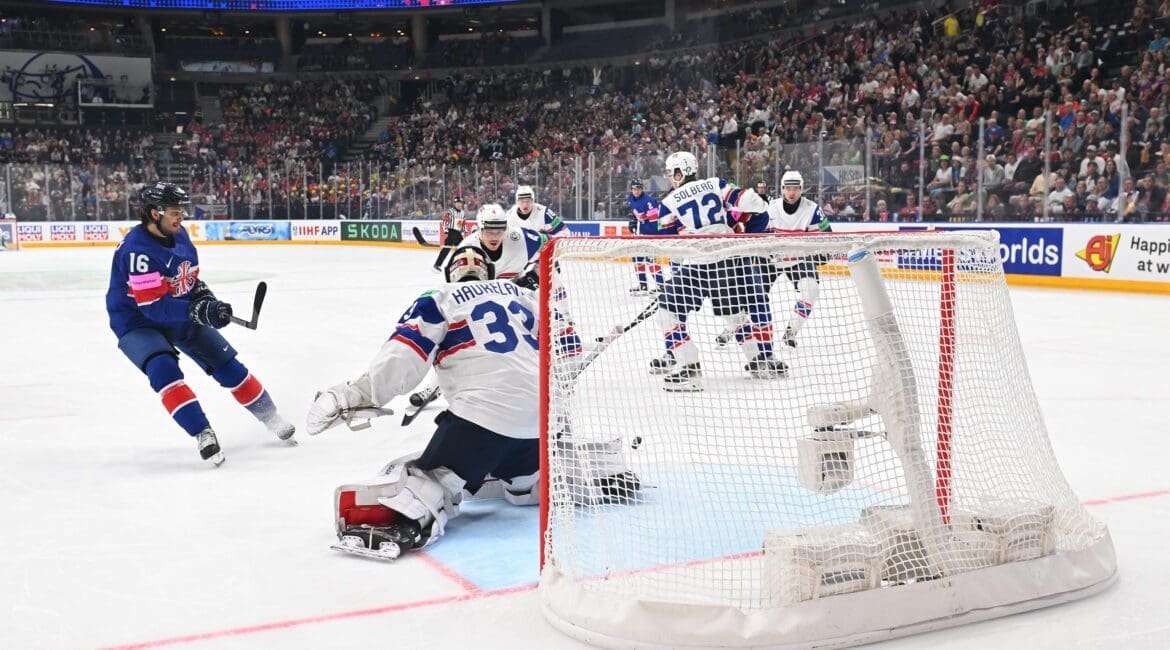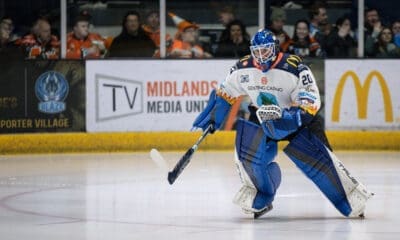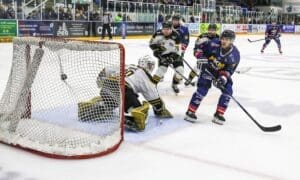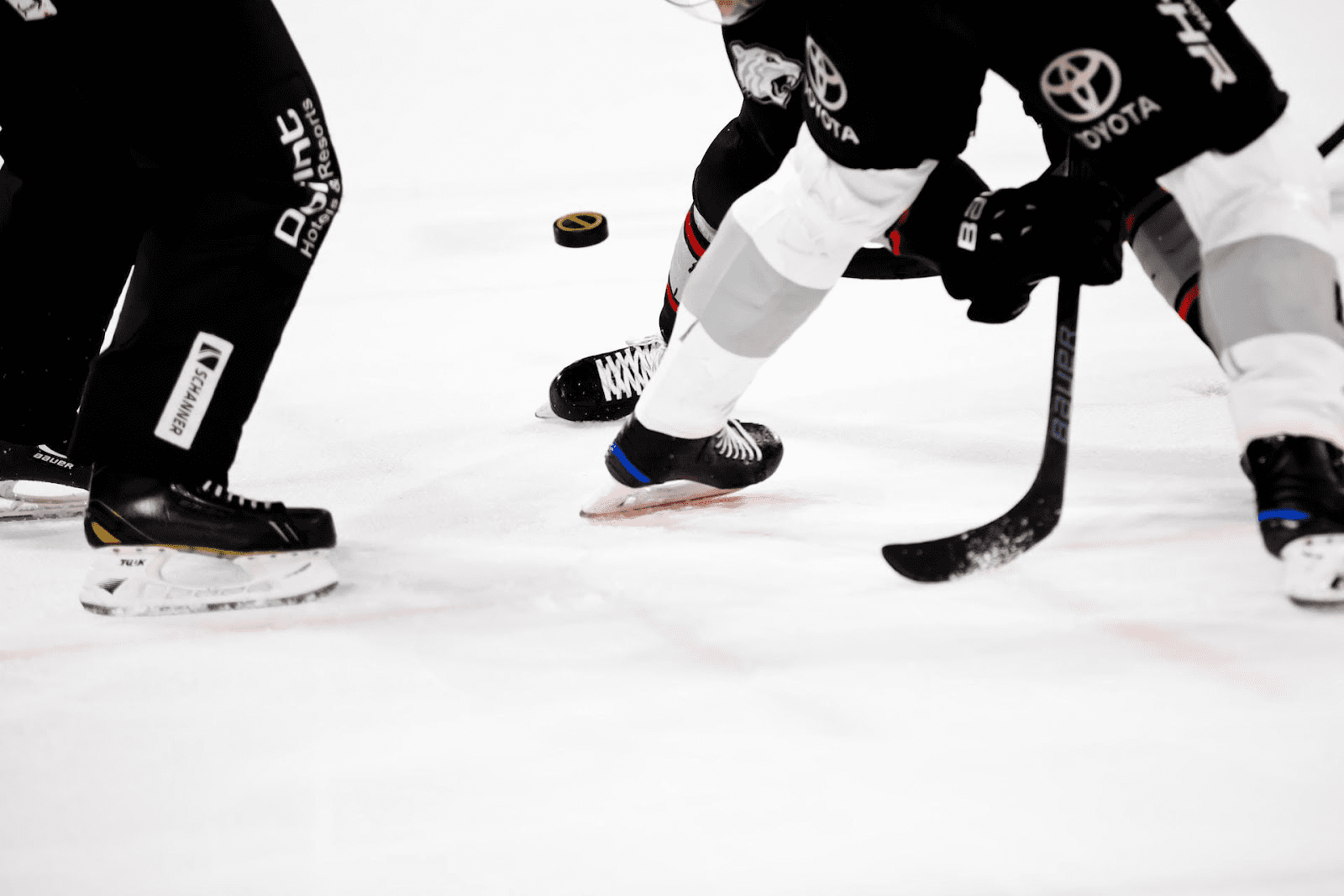Team Great Britain’s ability to produce moments of magic when it matters the most abandoned them on Monday [20 May], when Norway skated away 5-2 victors to condemn Pete Russell’s men to relegation and an immediate return to Division 1A of the IIHF World Championships.
Before the puck was dropped in Prague, the script for another fairytale escape had been written – Team GB needed to beat Norway in regulation time… and that was exactly what they would do.
Except they didn’t and endured a painful and comprehensive regulation time defeat of their own instead.
Hope was lost within twelve minutes of puck drop, with Eskkild Bakke Olsen firing Norway into an unsurmountable three-goal lead.
It just wasn’t to be, not this time.
With that in mind, here are three takeaways following Team GB’s defeat to Norway and confirmation of their relegation at the IIHF World Championship.
Norway made Team GB pay for their slow start
“We came into this game thinking we could take something but we didn’t have a good first period,” said Team GB captain Robert Dowd.
“That was what buried us. We didn’t hang our heads, we tried to claw our way back, but there’s a reason why these guys have been at this level for so many years. They can get it done in these situations.”
The afternoon might have played out differently if Cade Neilson had found a way to convert his early grade-a scoring chance, but Norway made the most of his miss by scoring twice in two minutes to make Team GB’s heads spin.
Norway’s first strike was a fine redirect the Brits can have no complaints about, but their second was the result of a poor Robert Lachowicz clearance and a shot that Jackson Whistle would have wanted to save.
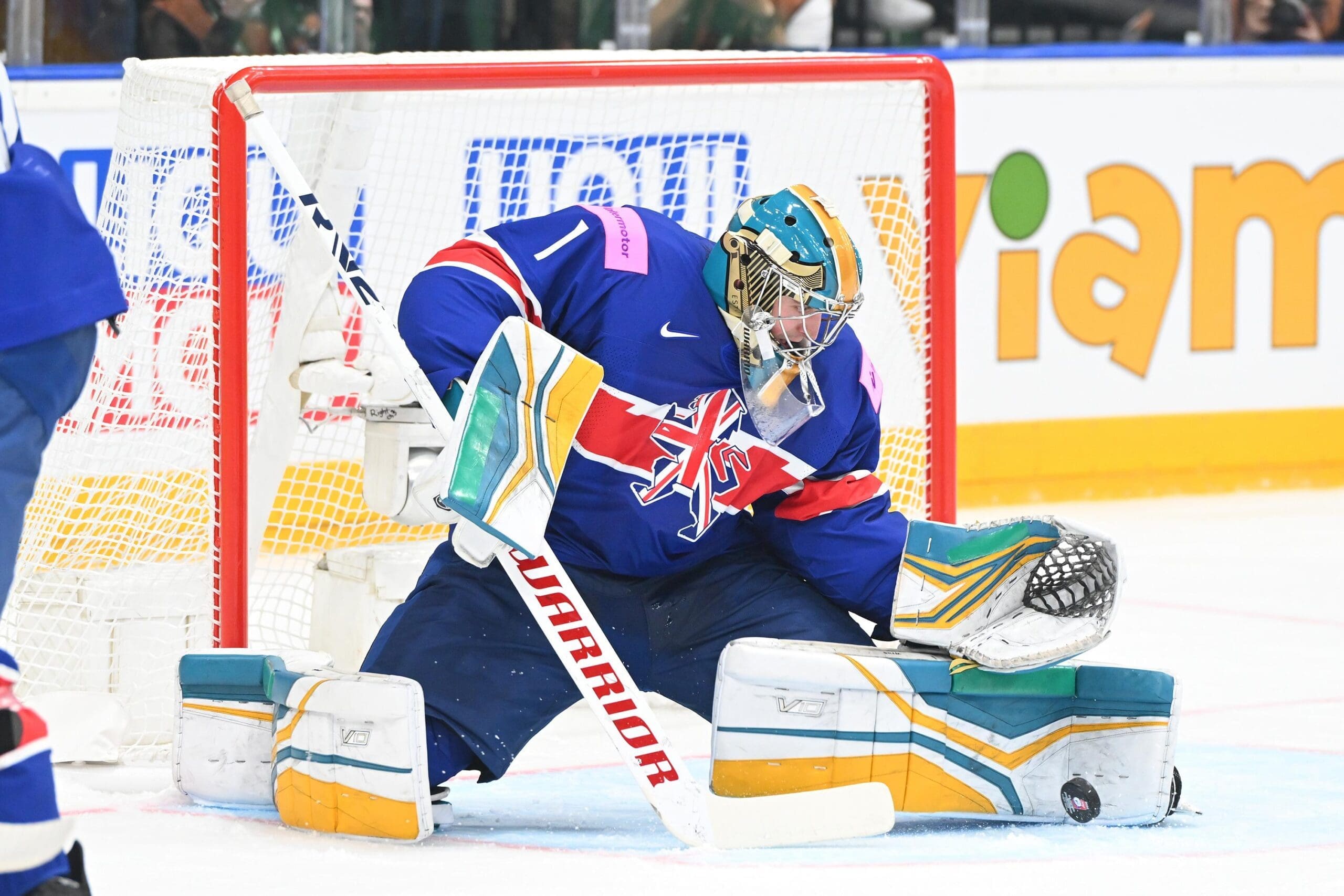
Jackson Whistle, Team GB at the IIHF World Championship (Image: Dean Woolley)
It was the same old story for Team GB.
They started well, missed early opportunities, and erased their momentum with defensive zone mistakes.
Without Liam Kirk, Team GB’s offence ran dry
Liam Kirk battled through illness to play against Norway but was unable to participate in the second period and looked a shadow of his usual self when he did hit the ice.
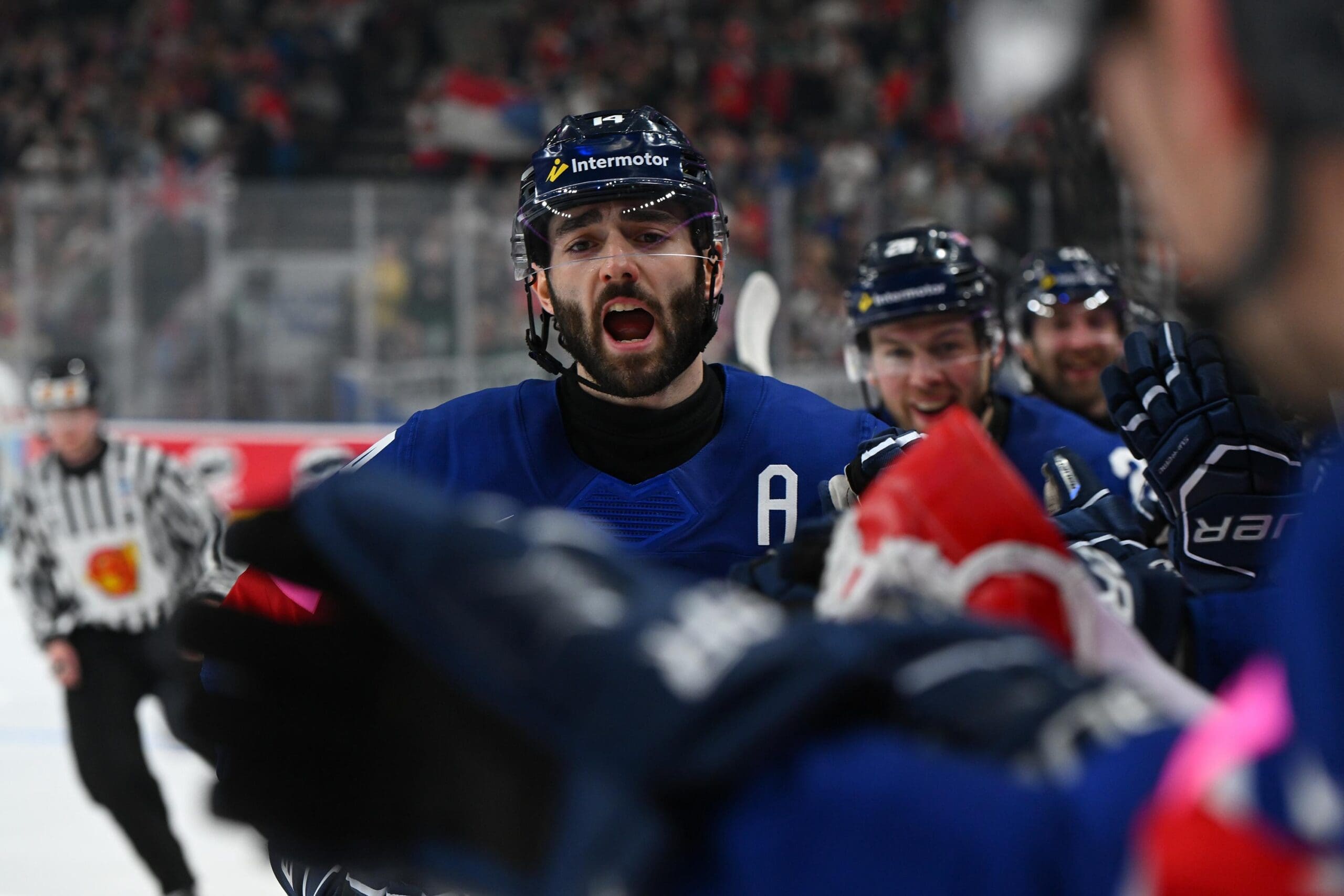
Liam Kirk, Team GB at the IIHF World Championship (Image: Dean Woolley)
Team GB struggled for offence in Kirk’s absence and questions will be asked about the composition of Pete Russell’s squad as a result.
The Brits have an abundance of forwards who are comfortable in defensive roles but seriously lack mercurial talents who habitually find twine.
It cost them in Prague.
After years of success, Team GB suffered a World Championship reality-check
In the aftermath of the national team’s brutal loss to Norway, which saw them outclassed and outgunned by an opponent some saw as upset fodder, supporters are split in half.
There is a section of the fanbase that would be best described as dejected, disappointed, or – in extreme cases – angry. They expected the team to complete another miracle relegation escape and see their latest trip to the top pool as an abject failure.
In the opposite camp, optimistic fans have nailed their colours to historical perspective and instead focus on Team GB’s monumental rise over the years.
While both sides have a point, neither is completely correct.
Yesterday’s all-or-nothing showdown saw Team GB take on Norway, a nation attempting to secure its 19th consecutive season of top flight hockey.
In addition to their tenured status at the sport’s top table, Norway’s roster includes a mix of highly-regarded prospects, headlined by wonderkid forward Michale Brandsegg-Nygard, and savvy veterans – iconic NHLer Mats Zuccarello, included.
Team GB’s roster, by contrast, is comprised almost entirely of players from the Elite League, some of whom carry American Hockey League experience. And Liam Kirk.
Perspective is important – this was another David versus Goliath situation for Pete Russell and his team, but they took a small backward step in Prague.
“This team has emptied the bag for the whole tournament. We lost Kirky as he was ill all night and we lost Cam Critchlow,” explained Russell.
“This is the hardest tournament we’ve been too. We’ve come up against top-class players and I think every player has done the country proud. We’ve been facing the best teams in the world. We’ve been at the top level for four of the past five years and that’s an achievement. We desperately wanted to stay up but it wasn’t to be.”
Earlier in the tournament, I wrote that Team GB were experiencing a cursed case of ‘so close, yet so far’ syndrome.
They are within touching distance of being able to skate with the likes of Norway and Denmark, but tired mistakes, patchy netminding, and a severe lack of scoring depth doomed them this time around and was the difference in those make-or-break encounters.
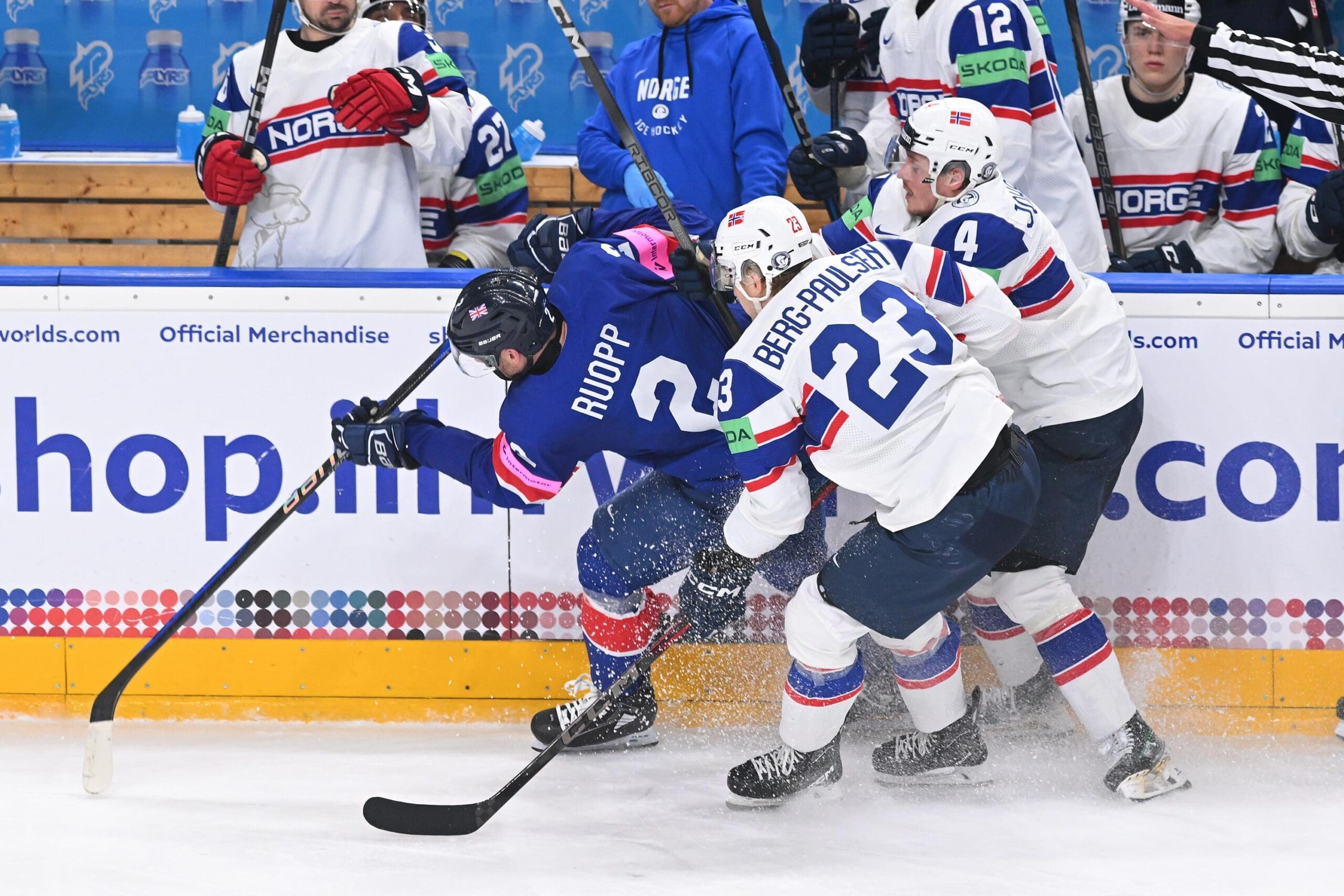
Sam Ruopp, Team GB at the IIHF World Championship (Image: Dean Woolley)
Take the loss to Norway, for example.
Team GB made a solid start and tilted the ice in their favour, but set fire to their momentum by conceding sloppily at the other end.
From there, the Norwegians had the contest covered and made Russell’s squad pay for their mistakes – Josh Batch’s ill-disciplined first period crosschecking penalty and an unforced bench minor for icing too many men on the powerplay in the final frame.
Against the Danes, a similar story played out, with Evan Mosey’s soft third period tripping penalty allowing Denmark to take a late lead and an even later too many men infraction ruining any prospect of a fairytale comeback.
Team GB’s mistakes will always be punished when playing at this level – they just didn’t have enough magic in reserve to pull them out of trouble this time.

